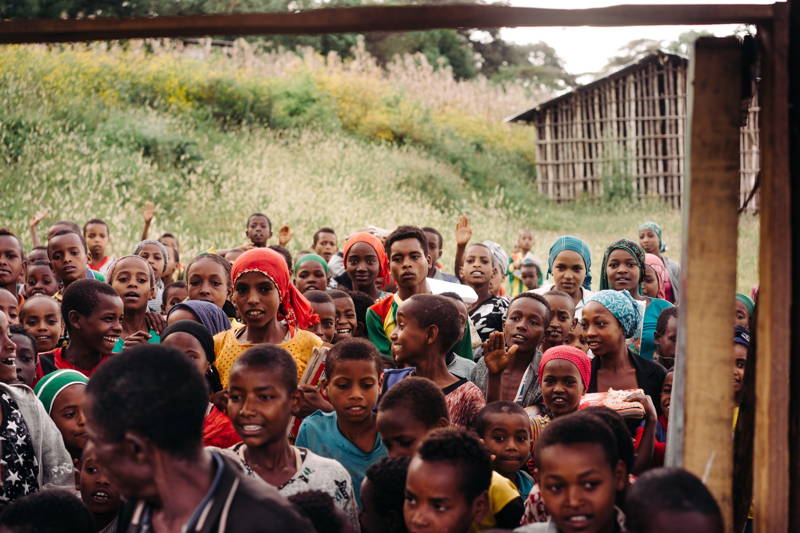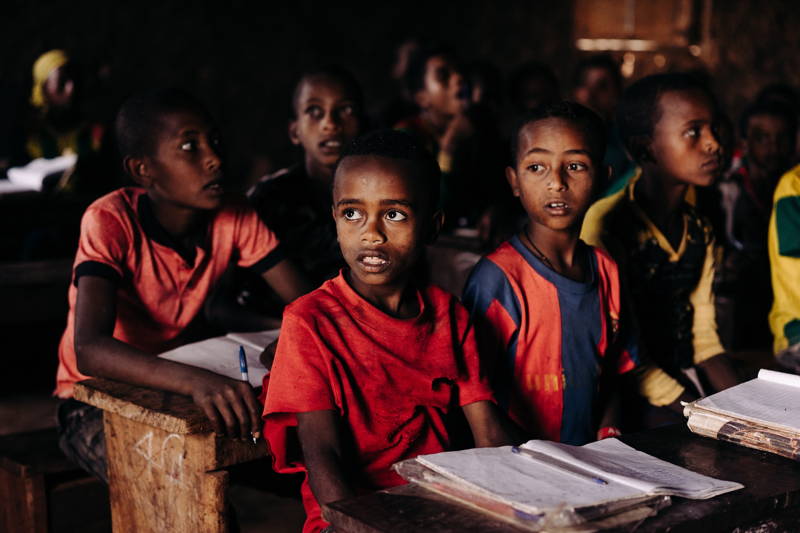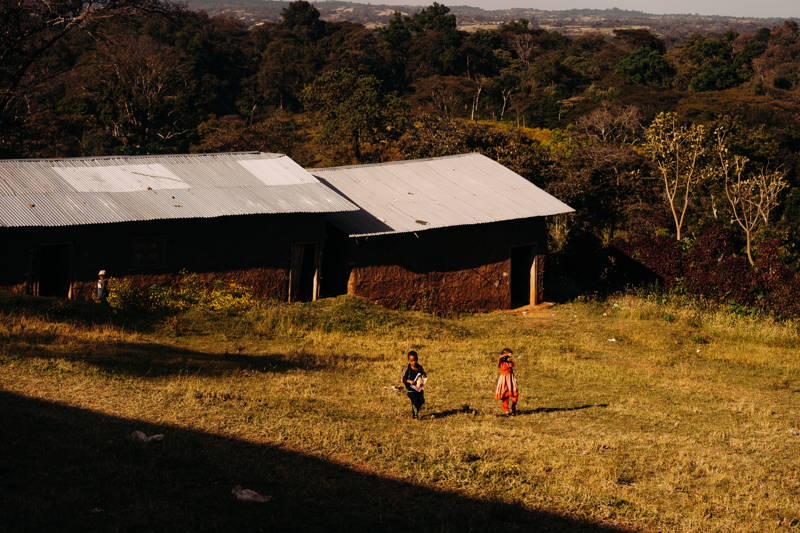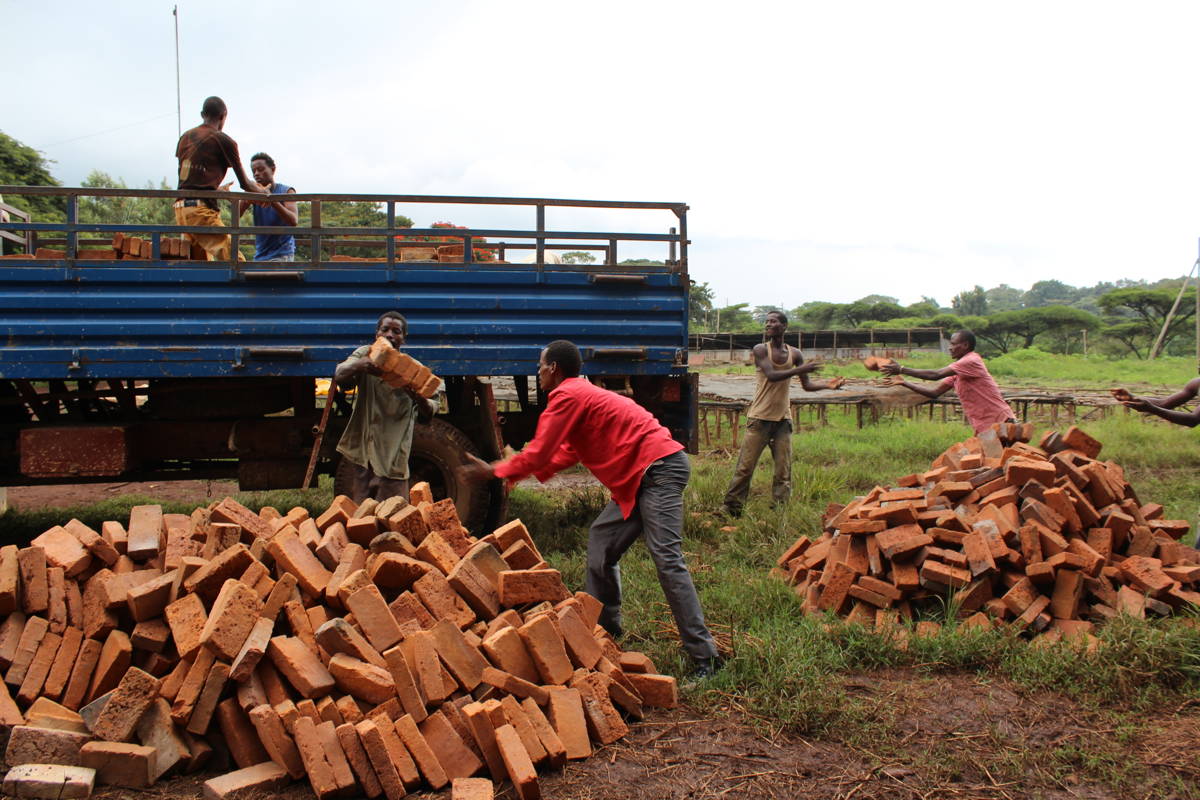
Satellite School – New elementary school in Limu region, Ethiopia
In 2014, the construction of a new elementary school („Satellite School“) near the Ilketunjo cooperative was completed. Together with coffee farmers and villagers, local handicraft companies, and the Ethiopian student initiative Action4Words, we built three classrooms and equipped them with furniture and teaching materials. Around 1,000 children can be taught appropriately there.
The Satellite School project was one of the most successful and fulfilling for us, not only because of the outcome but also because of the close collaboration with farmers, artisans, and the local government. Through a strong relationship of trust, we were able to overcome challenges and build and furnish a school that prepares students for future careers and life. We also learned a lot about project support and lessons that have helped us in the future.
In brief
- Project volume: € 24,080
- Implementation period: 2014-2015
- Project location: Ilketunjo, Jimma, Ethiopia
- Cooperatives: Ilketunjo, Doyo, Wokito, Alaga Sekala
- NGO Partner: Action4Words
- Beneficiaries: approx. 5,500 people (incl. affected households)
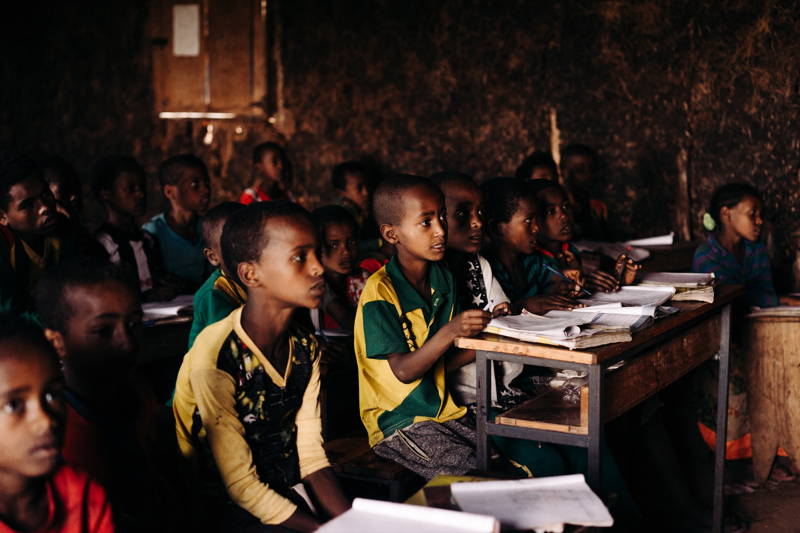
Why was this project so important?
A so-called Satellite School refers to a school building that is located at some distance from the original school area. This was undoubtedly the case at Olmahayee Primary School: When we invested in school materials in Ilketunjo, it quickly became apparent that some students had to walk up to 10 km to attend classes. This is especially strenuous and sometimes dangerous for young students in the first grades. For the first classes, there was a sparsely equipped school on a mountain. The classroom was so small that some lessons were held under a large tree. Together with farmers and the local authorities, we decided to invest in a new, larger building and to equip it with the necessary materials and furniture. The original 150 students have grown to almost 1,000 (as of 11/2021). The government sent additional teachers, and the school now teaches up to the eighth grade in preparation for the training that students can subsequently undergo.
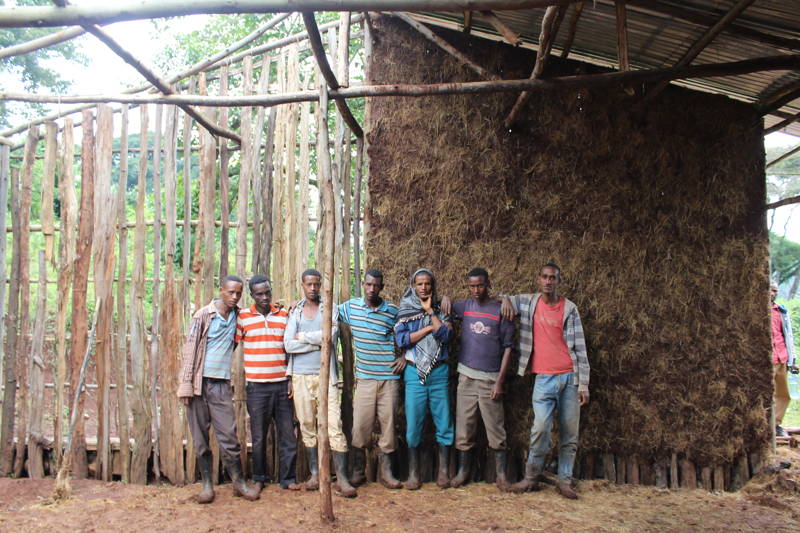
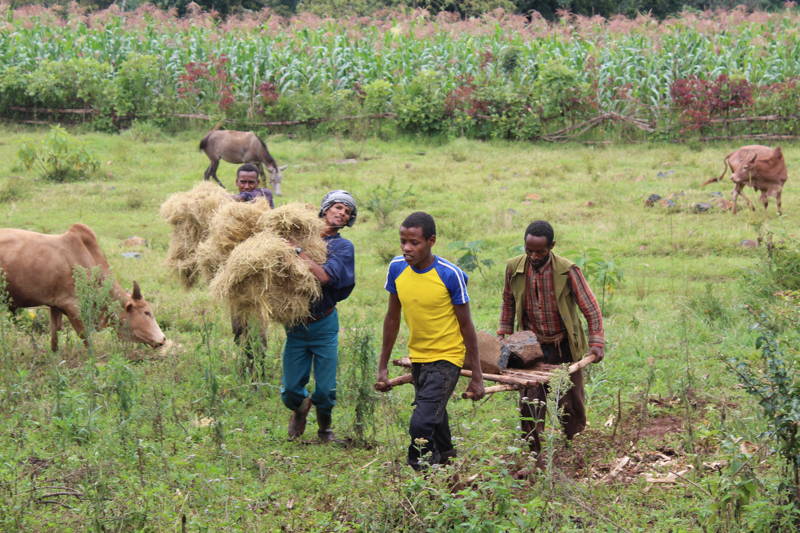
How was this project implemented?
It was an important sign why the involvement of local people is so important to implement projects. The school is built by them, supported by us. It is dignified.
During a visit to Ilketunjo, it quickly became clear that an earthen building covered with palm leaves would not suffice as a school, which is also difficult to reach for many. In coordination with the local community and the coffee farmers, with whom we worked closely, we, therefore, decided to tackle the construction and establishment of the Olmahayee Satellite School as a new project. In the beginning, various NGOs we had approached tried to take the wind out of our sails: To launch a project of almost 25,000 € in close cooperation with the local community over several months in Ethiopia was unrealistic and would never work. The doubters were proven wrong.
Our colleague Anne lived on-site in Jimma for three months to represent us there during the construction of the school and to coordinate the craftsmen, architects, roofers, construction workers, and representatives of the local government in close consultation with the local residents. The Satellite School was a crucial project for us because it demonstrated like no other how our approach can empower partners, their families, and regions through support rather than charity: For €1 per coffee sold, we don’t just donate money, but work hand in hand with local people who have produced high-quality coffee and sold it to us. In return, we help to build a school that they themselves have financed with their coffee cultivation. This financial support is part of the service.
Stephan Eicke: Martin, you were actively involved at the time. What were the biggest challenges in what was the most complex project to date?
Martin Elwert: The financial transactions. We always had to send money from Germany, but we couldn’t transfer €30,000 all at once. We had to collect this money first. You can’t transfer large sums to Ethiopia unnoticed. There is a central system there that controls all large money transfers. One afternoon, investigators showed up at the door of our local partner. They wanted to know where the money had gone that he had received from Europe – from us. We had, of course, discussed everything with the local government beforehand and obtained permission, so we had nothing to fear after convincing the investigators. If we hadn’t gotten that permission beforehand and just decided to build a school, we would have been in real trouble, because if you don’t follow the law, no German embassy will protect you either, and the money is then just gone – no matter how good your intentions are.
Did you transfer the money all at once?
No, we didn’t have the entire sum in one go. At one point we had to collect the rest of the money, which led to the farmers with whom we worked closely to build the school suggesting that we spend the money. We could then pay it back later. Again, we were laughed at by every NGO who told us it would never work. In fact, it worked out perfectly. The farmers collected several thousand euros over several months and laid it out, based solely on our promise to pay it back later. We did that, of course, and the principal trusted us. It was really cool, and an important sign of why the involvement of local people is so important to implement projects. The school is built by them, supported by us. It’s dignified. This way they don’t need to be motivated to take care of the maintenance. It’s their project, they do it of their own accord.
This close collaboration with the local community expressed itself in several ways, not only financial. Since the roads were not suitable for transporting heavy materials via trucks, farmers contributed their own donkeys, which hauled equipment over several kilometers. Nearly 230 donkeys were used.
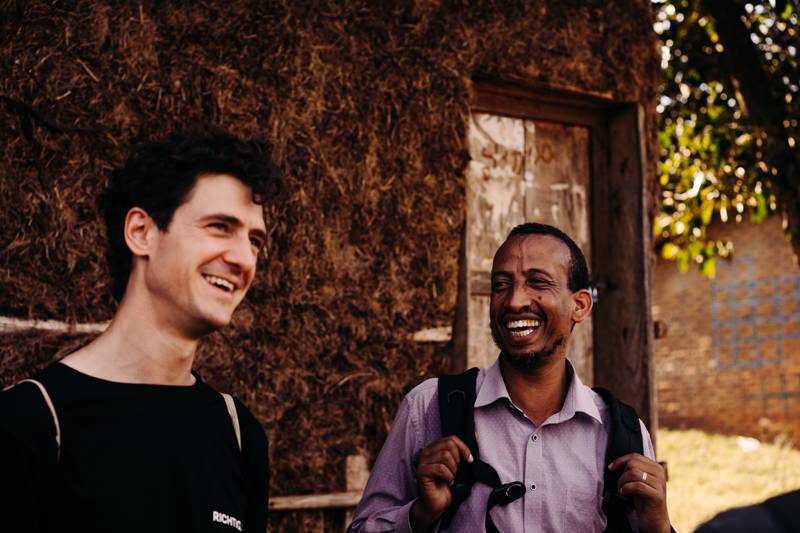
Our coffees from Ethiopia
What has changed?
The school was completed in 2014. In the meantime, almost 1,000 students attend the Olmahayee Satellite School in three large classrooms up to eighth grade. The impact is measurable here because all students complete their school education and are then prepared for vocational training. The local government requested more teachers so that the boys and girls could be taught properly and the school could grow. In the meantime, classes are held there in shifts, in the morning and in the afternoon. We were particularly pleased with the commitment and support of the independent NGO Action4Words, which was able to contribute money to complete the project.
The Satellite School has encouraged us in our approach and motivated us to implement similar ventures in close cooperation with the local community as part of the remuneration for the high-quality coffee produced by the cooperatives and farmers.
An article by Stephan Eicke
